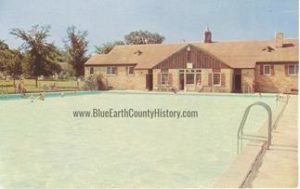
Tourtellotte Swimming Pool has its history rooted in the Depression of the 1930s. The Great Depression affected everyone from New York to California. Mankato was not immune to the national unemployment and economic crisis. To combat this, in 1935 the Federal government formed the Work Program Association- WPA. Its goal was to provide work for people affected by unemployment due to the depression and to build city structures to enhance America’s growing towns and cities. A majority of the WPA’s work was working with state and local governments to fund projects. With the help of WPA funds for architects, construction experts and construction crews and supplies, and acres donated by a local bank Tourtellotte Park was created. In 1936 the National Bank of Commerce donated 8.5 acres of land to the City of Mankato for a community park. Later that year, Mankato City Council provided additional land for recreational, and playground use. Construction lasted from 1936 until 1940. The original park boasted one swimming pool, a bathhouse with the plans to expand additional tennis and badminton courts.
The park is named for Colonel John Eaton Tourtellotte, born July 3rd, 1833 in Thompson, Connecticut. He came to Mankato in 1857, and was a gentleman and a bachelor adored by men and women at social events. He would practice law with then-District Judge, Judge Franklin Harper Waite at the age of 33. At the time, Mankato was not filled with elderly people, it was still new. Those that came to Mankato at the time were young couples from the East and settlers with young children. Tourtellotte served with honor in the Eleventh Minnesota Militia during the Civil War as a Lieutenant Colonel. He organized Company H Fourth Minnesota Infantry, advancing to Regimental Colonel commanding in the battles of Champion Hill, Chattanooga, Vicksburg, and Altoona Pass. Later he served under General William Tecumseh Sherman, taking part in the famous “Sherman’s March to the Sea” in the winter of 1864. At the conclusion of the Civil War, Tourtellotte was named a Brigadier General in the United States Volunteers. He would be called back to Washington and offered a commission in the 26th US Infantry as a Detailed Superintendent of Indian Affairs in Utah. He would be transferred to the Seventh Cavalry led by General George Custer. As luck would have it, he was recalled back to Washington to act as General Sherman’s aide at the rank of Colonel. Tourtellotte lived and served in multiple locations, crossing paths with figures known in US History books, and never forgot about Mankato. To show his affection, he donated eight thousand dollars to Mankato for use to build a hospital. Over the years, mismanagement marred Tourtellotte’s gift, however, Mankato wanted to honor their benefactor. In 1940, his name was used for the park created with the aid of the WPA and the City of Mankato. Tourtellotte park was praised by businessmen at the time “Tourtellotte Park and swimming pool is more than a place to go swimming, it’s a place where the parents can send their children and know they are safe”.
Mankato area residents have enjoyed swimming at Tourtellotte park for 82 years. Generations of families have grown up at Tourtellotte!
Imagine this: In a few short years, we as a city may well be planning an 85th Birthday Party Celebration for our WPA swimming house and swimming pool! We are surrounded by history!
Timeline of Tourtellotte Park History:
Feb 1936 = National Bank of Commerce donates lot of land for use as a community pool.
June 1936 = Possible community pool/park sites discussed.
Sept 1936 = The New Park Naming contest offers 99 name possibilities submitted by the public.
Oct 1936 = After months of wrangling with details, a unanimous vote to locate the new community swimming pool on a corner of 8.5 acres of green space donated earlier that year.
Tourtellotte name was chosen for the new city park.
1938 = Architect drawings of community swimming pool and adjacent Baseball diamond shared in Mankato Free Press.
July 1940 = Tourtellotte Park officially opened and dedicated. Final cost $67,000.
Summer 1941 = Mankato Free Press publishes regular reports about the Tourtellotte pool. A large-scale grid lists Month & Date, the temperature of pool at 2p m, attendance paid, attendance fee, attendance coupons, daily attendance totals, and daily deposit.
1943 = Cost of swimming: 6 cents.
1948 = Honoring 10 years since architectural rendering declaring a new park, Free Press features an article on the biography of Colonel John E. Tourtellotte–a lawyer, Civil War veteran, and Mankato’s first philanthropist – park’s namesake
Learn more about Tourtellotte’s History with this podcast.
Enjoyed by kids and families in Blue Earth County for decades! Memory-making summer pool experience across generations!
1975= Park bond referendum in Mankato passes. There was now a financial springboard to pay for park maintenance and repairs in the coming years.
July 1980= Pool heater stops. Discussion if Tourtellotte is worth repairing. Should Park Bond money help repair/maintain Tourtellotte?
Quickly 1400 citizens create the Save Tourtellotte Pool Committee and vocally advocate for heater repairs, but also overdue maintenance and repairs in the shower houses and the pool proper.
Aug 1982 = record-setting summer. Average summers see 18,000 people at Tourtellotte Pool. Early August featured 24,000 visitors.
1988 = Admission is $1.25
1994 = Parks Director Floyd Roberts is granted permission to install one pool slide.
1996 = Admission is $1.50, wading pool is 75 cents.
2017 = $6.5 million waterpark plans discussed for the Mankato area. Area residents wonder if the green spaces at Tourtellotte Park will be the site chosen.
2022 = FREE swimming to all, as next summer the pool will be closed for construction and maintenance upgrades next year.
2023 = Tourtellotte Park will get a new family-friendly, zero-depth play pool, and a taller 3-loop water slide.
For more information about Tourtellotte Pool hours, visit their website.
By Gideon Afolayan, edited by BECHS Staff


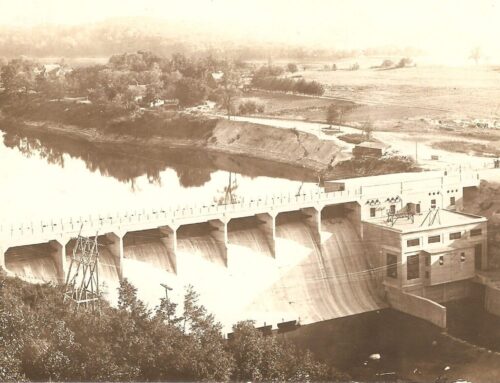
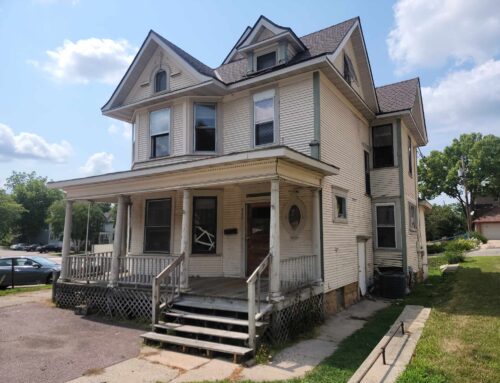
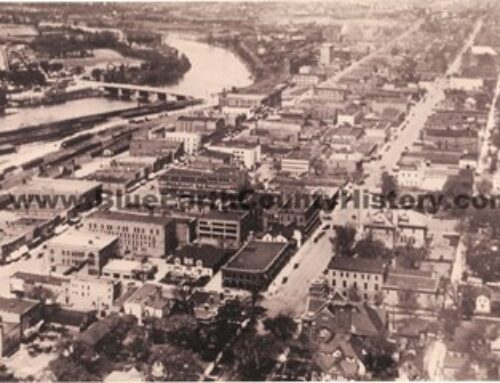

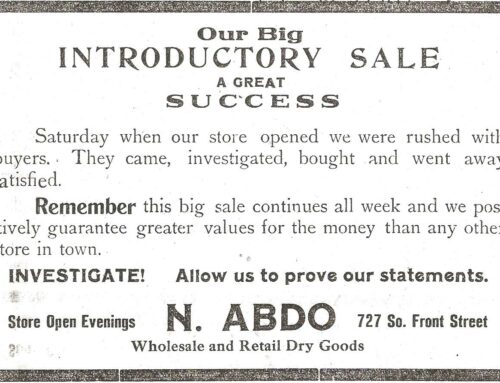
Enlightening piece. While I knew about the hospital I was unaware of the WPA’s hand in the construction.
I loved this place growing up. So many happy memories. My cousins and I would walk from our grandparents house to the pool every summer. All summer long. What a special place.
Brrr…We Kenwards remember freezing cold swim lessons every (June?) every year. Our lips were always blue, but by golly, none of us have ever drowned.
I later dated and married the pool manager and head lifeguard Steve Kosberg. Quite the place. 😅